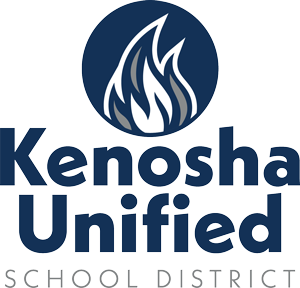aimswebPlus Early Reading Screener
Dear Parents and Guardians,
At Kenosha Unified, we want every student to grow and succeed. One way we support this goal is through regular screenings in reading and math. These screenings give us important information about your student’s skills and help us ensure they are learning and thriving.
Why Screenings Matter
Screenings help us check your student’s progress in key skill areas of reading and math. By identifying strengths and areas that need improvement, we can adjust teaching and provide the right support. Whether your student needs extra help or additional challenges, screenings guide us to meet their individual needs.
Screening Windows
Screening Windows are the dates in which your student will test in reading or math. Please refer to the District Assessment calendar on the KUSD website for your student’s specific screening dates.
What Are We Measuring?
KUSD is using aimswebPlus as our universal screener for students in PreK-8. AimswebPlus focuses on important skills in reading and math that build the foundation for success in school. Here are the skills that are measured:
Reading Skills
- Auditory Vocabulary: Knowing words commonly found in kindergarten and first-grade reading.
- Initial Sounds: Identifying and producing the first sound in a word (pre-K and kindergarten).
- Letter Naming Fluency: Recognizing uppercase and lowercase letters (kindergarten and first grade).
- Letter Word Sounds Fluency: Matching letters to their sounds (pre-K and kindergarten).
- Nonsense Word Fluency: Phonics, the ability to produce the sounds of letters and combine those sounds into the sounds of letter strings (kindergarten and first grade).
- Oral Reading Fluency: Reading grade-level text smoothly and accurately (first through third grades).
- Phoneme Segmentation: Phonemic awareness, an awareness of (and ability to produce) the individual sounds in spoken words (kindergarten and first grade).
- Reading Comprehension: Demonstrating understanding of grade-level texts (second through eighth grade).
- Silent Reading Fluency: Reading and understanding short texts (fourth and eighth grade).
- Vocabulary: Understanding grade-appropriate words (second through eighth grades).
- Word Reading Fluency: Demonstrating reading grade level words aloud (first grade).
- Early Literacy / Reading: combination of multiple measures to give an overall composite score.
Math Skills
- Math Fact Fluency-1 Digit: Mentally adding and subtracting numbers 0-10 (first grade).
- Math Fact Fluency-Tens: Mentally adding and subtracting numbers 10+ (first grade).
- Number Comparison Fluency-Pairs: Comparing numbers (first grade).
- Number Comparison Fluency-Triads: Comparing groups of numbers (second through eighth grade).
- Mental Computation Fluency: Mentally solving one step or two step math problems (second through eighth grade).
- Concepts and Applications: Understanding and applying grade-level math concepts (second through eighth grade).
- Early Numeracy / Math: a combination of multiple measures to give an overall composite score.
What Do the Results Mean?
A National Percentile Rank shows how your child’s performance compares to other students in the same grade. For example, being in the 60th percentile means your child performed as well as or better than 60% of students. When we screen your child, we compare their performance to other children their age across the country using something called a “percentile rank”. This is similar to how a doctor might compare your child’s height or weight to other children. It helps us see where your child is doing well and where they might need extra practice.
KUSD will share this important information through a new educational analytics tool called NextPath, which also features a parent portal. NextPath is an online platform that will foster a partnership between schools and families by providing access to student data and creating opportunities for parent/guardian input when requested by the school.
How We Use the Results
Screening results show us how your child is doing and help us adjust instruction:
- Well Below Average (1st-10th Percentile): Intensive support and re-teaching.
- Below Average (11th-24th Percentile): Additional support and practice.
- Average (25th-75th Percentile): Regular instruction with extra help or more challenges as needed.
- Above Average (76th-89th Percentile): Enrichment and extensions.
- Well Above Average (90th Percentile and Above): Advanced challenges and extensions.
Partnering With You
Screenings are just one part of understanding your student’s progress. We also use classroom activities, teacher observations, and other assessments. Please reach out to your student’s teacher with any questions. Thank you for being an important part of your student’s learning journey!
